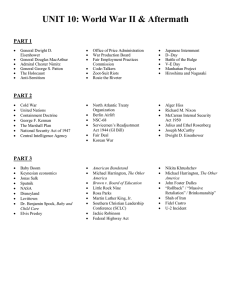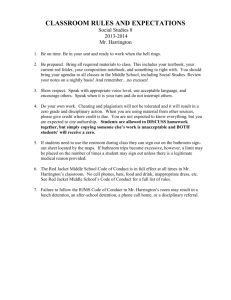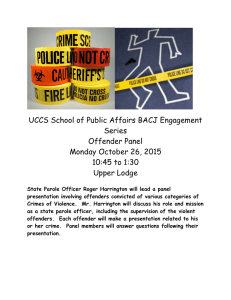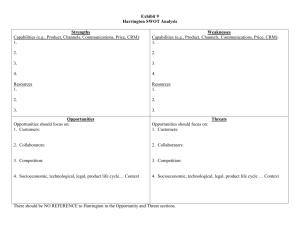W
advertisement
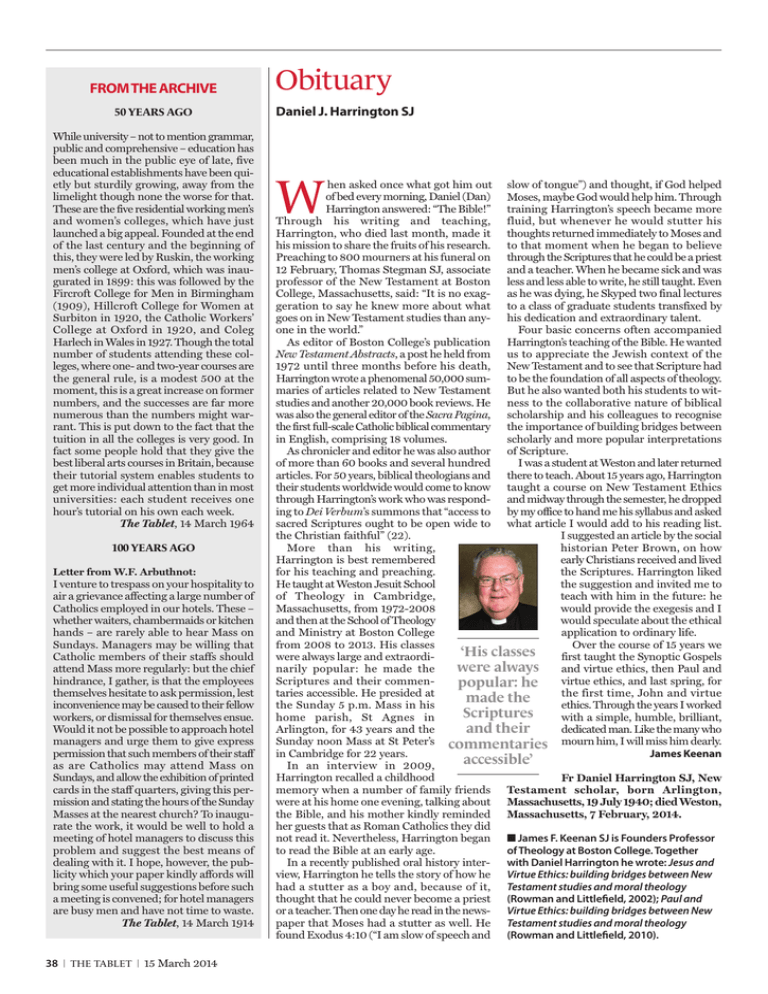
FROM THE ARCHIVE 50 YEARS AGO While university – not to mention grammar, public and comprehensive – education has been much in the public eye of late, five educational establishments have been quietly but sturdily growing, away from the limelight though none the worse for that. These are the five residential working men’s and women’s colleges, which have just launched a big appeal. Founded at the end of the last century and the beginning of this, they were led by Ruskin, the working men’s college at Oxford, which was inaugurated in 1899: this was followed by the Fircroft College for Men in Birmingham (1909), Hillcroft College for Women at Surbiton in 1920, the Catholic Workers’ College at Oxford in 1920, and Coleg Harlech in Wales in 1927. Though the total number of students attending these colleges, where one- and two-year courses are the general rule, is a modest 500 at the moment, this is a great increase on former numbers, and the successes are far more numerous than the numbers might warrant. This is put down to the fact that the tuition in all the colleges is very good. In fact some people hold that they give the best liberal arts courses in Britain, because their tutorial system enables students to get more individual attention than in most universities: each student receives one hour’s tutorial on his own each week. The Tablet, 14 March 1964 100 YEARS AGO Letter from W.F. Arbuthnot: I venture to trespass on your hospitality to air a grievance affecting a large number of Catholics employed in our hotels. These – whether waiters, chambermaids or kitchen hands – are rarely able to hear Mass on Sundays. Managers may be willing that Catholic members of their staffs should attend Mass more regularly: but the chief hindrance, I gather, is that the employees themselves hesitate to ask permission, lest inconvenience may be caused to their fellow workers, or dismissal for themselves ensue. Would it not be possible to approach hotel managers and urge them to give express permission that such members of their staff as are Catholics may attend Mass on Sundays, and allow the exhibition of printed cards in the staff quarters, giving this permission and stating the hours of the Sunday Masses at the nearest church? To inaugurate the work, it would be well to hold a meeting of hotel managers to discuss this problem and suggest the best means of dealing with it. I hope, however, the publicity which your paper kindly affords will bring some useful suggestions before such a meeting is convened; for hotel managers are busy men and have not time to waste. The Tablet, 14 March 1914 38 | THE TABLET | 15 March 2014 Obituary Daniel J. Harrington SJ W hen asked once what got him out slow of tongue”) and thought, if God helped of bed every morning, Daniel (Dan) Moses, maybe God would help him. Through Harrington answered: “The Bible!” training Harrington’s speech became more Through his writing and teaching, fluid, but whenever he would stutter his Harrington, who died last month, made it thoughts returned immediately to Moses and his mission to share the fruits of his research. to that moment when he began to believe Preaching to 800 mourners at his funeral on through the Scriptures that he could be a priest 12 February, Thomas Stegman SJ, associate and a teacher. When he became sick and was professor of the New Testament at Boston less and less able to write, he still taught. Even College, Massachusetts, said: “It is no exag- as he was dying, he Skyped two final lectures geration to say he knew more about what to a class of graduate students transfixed by goes on in New Testament studies than any- his dedication and extraordinary talent. one in the world.” Four basic concerns often accompanied As editor of Boston College’s publication Harrington’s teaching of the Bible. He wanted New Testament Abstracts, a post he held from us to appreciate the Jewish context of the 1972 until three months before his death, New Testament and to see that Scripture had Harrington wrote a phenomenal 50,000 sum- to be the foundation of all aspects of theology. maries of articles related to New Testament But he also wanted both his students to witstudies and another 20,000 book reviews. He ness to the collaborative nature of biblical was also the general editor of the Sacra Pagina, scholarship and his colleagues to recognise the first full-scale Catholic biblical commentary the importance of building bridges between in English, comprising 18 volumes. scholarly and more popular interpretations As chronicler and editor he was also author of Scripture. of more than 60 books and several hundred I was a student at Weston and later returned articles. For 50 years, biblical theologians and there to teach. About 15 years ago, Harrington their students worldwide would come to know taught a course on New Testament Ethics through Harrington’s work who was respond- and midway through the semester, he dropped ing to Dei Verbum’s summons that “access to by my office to hand me his syllabus and asked sacred Scriptures ought to be open wide to what article I would add to his reading list. the Christian faithful” (22). I suggested an article by the social More than his writing, historian Peter Brown, on how Harrington is best remembered early Christians received and lived for his teaching and preaching. the Scriptures. Harrington liked He taught at Weston Jesuit School the suggestion and invited me to of Theology in Cambridge, teach with him in the future: he Massachusetts, from 1972-2008 would provide the exegesis and I and then at the School of Theology would speculate about the ethical and Ministry at Boston College application to ordinary life. from 2008 to 2013. His classes Over the course of 15 years we ‘His classes were always large and extraordifirst taught the Synoptic Gospels were always and virtue ethics, then Paul and narily popular: he made the Scriptures and their commenpopular: he virtue ethics, and last spring, for taries accessible. He presided at the first time, John and virtue made the the Sunday 5 p.m. Mass in his ethics. Through the years I worked Scriptures home parish, St Agnes in with a simple, humble, brilliant, Arlington, for 43 years and the dedicated man. Like the many who and their Sunday noon Mass at St Peter’s commentaries mourn him, I will miss him dearly. in Cambridge for 22 years. James Keenan accessible’ In an interview in 2009, Harrington recalled a childhood Fr Daniel Harrington SJ, New memory when a number of family friends Testament scholar, born Arlington, were at his home one evening, talking about Massachusetts, 19 July 1940; died Weston, the Bible, and his mother kindly reminded Massachusetts, 7 February, 2014. her guests that as Roman Catholics they did not read it. Nevertheless, Harrington began ■ James F. Keenan SJ is Founders Professor to read the Bible at an early age. of Theology at Boston College. Together In a recently published oral history inter- with Daniel Harrington he wrote: Jesus and view, Harrington he tells the story of how he Virtue Ethics: building bridges between New had a stutter as a boy and, because of it, Testament studies and moral theology thought that he could never become a priest (Rowman and Littlefield, 2002); Paul and or a teacher. Then one day he read in the news- Virtue Ethics: building bridges between New paper that Moses had a stutter as well. He Testament studies and moral theology found Exodus 4:10 (“I am slow of speech and (Rowman and Littlefield, 2010).

